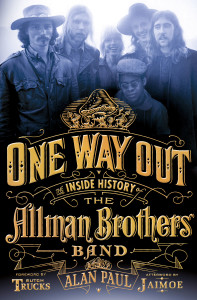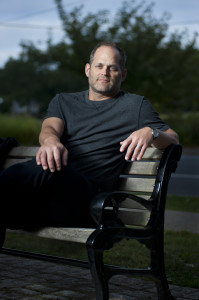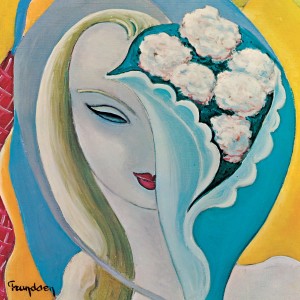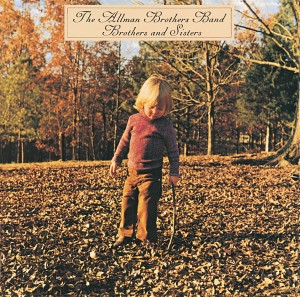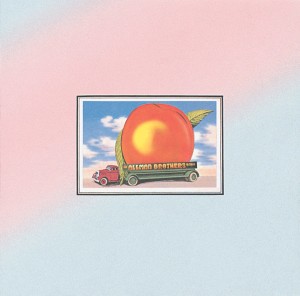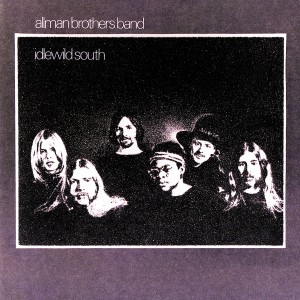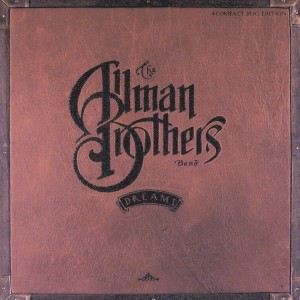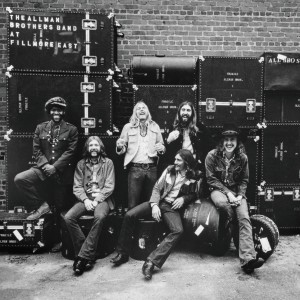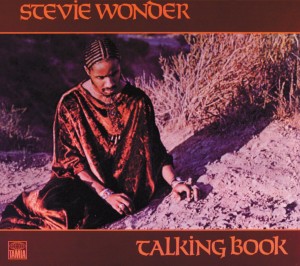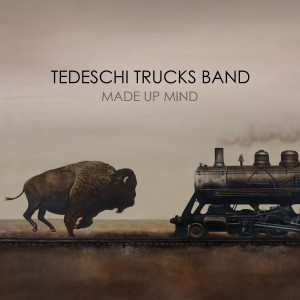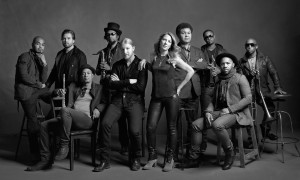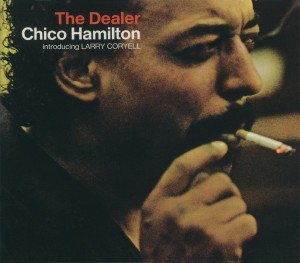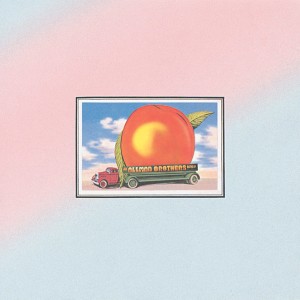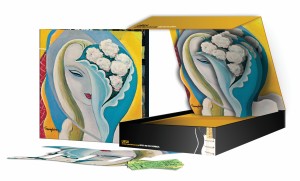If knowledge is power, then Alan Paul is the chairman of The Allman Brothers board. His definitive inside history of The Allman Brothers Band, One Way Out (St. Martin’s Press), is one of the most thorough, in-depth, and best-researched rock biographies I’ve had the pleasure to read — and if you know me, you know I pretty much read ‘em all. Though I’m a diehard Allmans fan and I’ve personally interviewed ABB members Gregg Allman, Butch Trucks, Warren Haynes, and Derek Trucks, I learned something new with just about every turn of the page. Alan’s first-hand reporting and meticulous research, presented in the oral-history format and strategically interspersed with his own insightful commentary, is so spot-on that one could almost retitle the book One Way In.
I first met Alan in early 1991 when I started writing freelance for Guitar World (he remains a ... Read More »]]>
If knowledge is power, then Alan Paul is the chairman of The Allman Brothers board. His definitive inside history of The Allman Brothers Band, One Way Out (St. Martin’s Press), is one of the most thorough, in-depth, and best-researched rock biographies I’ve had the pleasure to read — and if you know me, you know I pretty much read ‘em all. Though I’m a diehard Allmans fan and I’ve personally interviewed ABB members Gregg Allman, Butch Trucks, Warren Haynes, and Derek Trucks, I learned something new with just about every turn of the page. Alan’s first-hand reporting and meticulous research, presented in the oral-history format and strategically interspersed with his own insightful commentary, is so spot-on that one could almost retitle the book One Way In.
I first met Alan in early 1991 when I started writing freelance for Guitar World (he remains a senior editor there today), and whenever he’d sink his teeth into stories about the likes of Albert King, The Doors, Lynyrd Skynyrd, and ZZ Top, I knew I’d be in for a damn good read. Recently, after devouring One Way Out, I asked Alan about the highlights of The Allman Brothers Band’s recorded legacy, Duane Allman’s involvement with Layla, and what he thinks about the ABB’s infamous runs at the Beacon Theatre in New York — and whether the band will go on.
Mike Mettler: What was the most shocking and/or surprising thing you learned while researching One Way Out?
Alan Paul: Not any one thing as much as an accumulation of details helping me — and hopefully my readers — understand the dynamics of the relationships between all members of the band. Duane Allman was the one with the vision for this very different band, and he was the one everyone looked up to and he held the thing together. I knew all that, but not the full extent of his charismatic leadership and the struggles to hold it together for so many decades without him.
I also developed an even deeper understanding of the tensions that led to Dickey Betts’ ouster from the band and the extent to which being in the band with him was living in a constant state of being bullied. It all blew up in 1996 in an Idaho hotel room. I outlined the details, which involve a knife, in the book. I knew the basics, but not the specifics, until my reporting for One Way Out. It’s all complicated, because Dickey pulled the thing out of the fire after Duane’s death and was the undisputed musical leader afterwards, and they never would have had the success they did without him, but it just reached a breaking point.
I also had not really realized that [bassist] Allen Woody was basically fired from the band — and it was all because he stood up to Dickey in that hotel room.
Mettler: If you had the chance to go back in time and meet Duane Allman, what would you have asked him?
Paul: Well, I’d most like to sit in the front row and listen to him play! What I’d really be curious to know is to what extent he envisioned what the band would sound like and how he was so sure in meeting and hearing each member that they were right person for the group. His vision of this thing and his ability to find the right people amazes me.
Mettler: Same Q about Berry Oakley.
Paul: Berry and Duane had an amazing relationship. As harmonica player Thom Doucette told me, Duane would think of something he wanted done, and Berry would make it happen. [Longtime Allmans roadie] Red Dog called him The Deacon. I don’t know what my question for Berry would be. I would just like to hang out with him because he seems like an amazing guy. [Original ABB bassist Oakley died after a motorcycle accident in Macon, Georgia on November 11, 1972, three blocks from Duane's fatal motorcycle accident on October 29, 1971.]
Mettler: On page 84, Eric Clapton says that he and Duane were “instant soul mates.” Would you agree? How important were The Layla Sessions to Duane as a player, and, ultimately, to The Allman Brothers Band?
Paul: I’ll have to take Eric’s word for it! By all accounts, Duane felt the same, so yes, I definitely agree. I’m not sure how important the sessions were to The Allman Brothers Band because they were on such a roll and really peaking already.
I would say that the sessions gave Duane confidence, but he never seemed to lack that. I think the sessions were certainly crucial to his overall reputation and allowed a lot more people to hear him — though a vast majority still have no idea it’s him. Most people think it’s all Eric. The fact remains that Duane wrote and played Clapton’s most famous lick, and I truly believe that Duane was who Clapton wanted to be. There’s no comparison in their playing in my mind; Duane is light years ahead.
Mettler: What’s your favorite song featuring Duane on the Layla album?
Paul: I love all of the interplay on Layla, but if I had to pick, I’d go for “Why Does Love Got to Be So Sad” or “Have You Ever Loved a Woman.”
Mettler: Do you think Dickey’s “Ramblin’ Man” changed the group’s direction and/or its leadership?
Paul: I think it reflected a change in leadership and direction more than it changed it [the band]. However, the success of the single and all that followed — stadium tours, etc. — no doubt solidified Dickey’s role as leader, not least in his own mind.
Mettler: Why is Brothers and Sisters an important album in the Allman Brothers canon?
Paul: Brothers and Sisters is a crucial album in the canon, because it definitively showed there could be life after Duane. Last year’s expanded box set is a delight, not least for a fantastic live show it includes [Live at Winterland, September 26, 1973, on Discs 3 and 4]. The way in which pianist Chuck Leavell and bassist Lamar Williams quickly and seamlessly integrated, subtly changing the band’s direction while retaining their essential nature, in the wake of the losses of Duane and Berry, is quite remarkable.
Mettler: Given the “lean years” of the mid-’70s to the late-‘80s, do you see a throughline from 1973’s Brothers and Sisters to their recording resurgence, 1990’s Seven Turns? The title track to Seven Turns is one of my personal favorite ABB songs, by the way.
Paul: Sure. Dickey Betts’ emerging leadership as a singer and songwriter for one thing, and the ability to integrate new talent and keep growing — on Brothers and Sisters with Lamar and Chuck and on Seven Turns with Warren and Woody. And I agree that “Seven Turns” is a great song.
Mettler: You’re a guitar player — what’s your personal favorite Allman Brothers songs to play?
Paul: I love playing “Blue Sky,” “One Way Out,” and “You Don’t Love Me.” I’m more of a rhythm player and singer and haven’t really tackled the more complex songs like “Jessica” and “Liz Reed.”
Mettler: What’s your favorite Allman Brothers song to just sit back and listen to?
Paul: I love listening to a lot of it, but “Dreams” and “Blue Sky” are probably my favorite kick-back songs. The former encapsulates the Gregg songs, the way they band incorporated modal jazz themes from Miles and Coltrane and Duane’s incredible depth. The latter is my favorite Dickey Betts’ major-key song and one of the finest examples of Dickey and Duane’s complementary playing.
Mettler: In the Acknowledgements section of One Way Out, you mention that your brother David turned you on to Eat a Peach. What year was that, and how old were you?
Paul: That was in 1978, when I was 12 years old. I was already a music freak who carried a little transistor radio with one of those white ear pieces around listening to music all the time. I had heard The Allman Brothers on the radio plenty and certainly knew “Ramblin’ Man” and “Jessica,” which were pretty big radio hits. My first actual memory of The Allman Brothers was going with my brother to see a talent show where this dude in a fake silk shirt with a little moustache got up and sang a karaoke style version of “Ramblin’ Man.” I have no clue how he got that backing track, but I thought it was the coolest thing I had ever seen.
Mettler: What was it about Eat a Peach that hooked you on the band?
Paul: It’s hard for me to retrace my steps to being 12 and know what the attraction was, but the talk of brotherhood meant a lot to me, and the artwork on the inside gatefold fascinated me and pulled me into an alternate universe that helped the music come alive. That’s why I was so thrilled to have the same artist, W. David Powell, provide the killer artwork for One Way Out’s end pages.
Mettler: What was the first record you bought as a kid with your own money? What kind of impact did it have on you?
Paul: Man, I have no idea what was first, but I bought a lot of records at National Record Mart in Pittsburgh. I bought tons of 45s before I ever bought an LP. Some early ones I remember buying were Terry Jacks’ “Seasons in the Sun,” some Partridge Family, and Steve Miller Band’s “The Joker.” One year, my big Chanukah present was a Glen Campbell album I had begged for. I bought everything: Cheech and Chong, Allman Brothers, Lynyrd Skynyrd… all of it had a huge impact on me.
Mettler: In the Appendix, you cite Idlewild South at the top of “The Peaches” list of their best albums. Tell me a bit more why you think it’s the ABB’s greatest recorded work.
Paul: I think that “Don’t Keep Me Wondering” and “Please Call Home,” both on Idlewild, are tremendously underrated Gregg songs. It also includes “Midnight Rider,” “Revival” — which is not my favorite song, but includes heavenly guitar harmonies — and the original version of “In Memory of Elizabeth Reed.”
The other contenders would be Brothers and Sisters and Eat A Peach. The reason I chose Idlewild is B&S does not have Duane, and Eat A Peach is only a partial studio album, filled out with great live tracks. If you put a single album together of Eat a Peach studio cuts, it would include “Blue Sky,” “Melissa,” “Stand Back,” “Les Brers in A Minor,” “Little Martha,” and “Ain’t Wastin’ Time No More,” and it would be a tremendous studio album.
Mettler: When was the first time you wrote about the ABB, and who was the first band member you interviewed? How did that experience go?
Paul: In 1990, I was living in Florida on the verge of giving up on being a writer and going to grad school to become a teacher. I got an assignment to write about them in Pulse. I was excited and went out and bought Dreams, their box set, and spent hours listening to it and Seven Turns. I became completely re-engrossed; the experience of writing that article was so profound to me — not just because I interviewed these guys for the first time and wrote about them, but I spent so much time listening to the music and re-immersing myself in it. I interviewed Gregg, Dickey, Warren, Woody, Phil Walden, and Tom Dowd — I went all out!
Then they came to Tampa. I hadn’t finished the article yet, and the show blew me away. It was incredible that they had reinvigorated themselves with Warren Haynes and Allen Woody. Warren made the biggest impression on me because he was standing up there with Dickey and holding his own, and they had new material, which gave them fresh life. I was still seeing The Grateful Dead, and I just started getting more and more disenchanted with their shows. I thought that these two bands were doing similar things, but The Allman Brothers were doing it a million times better.
Then I finished the article, and I went on a trip to Wyoming with my friend Art. We only had a couple of cassettes with us, and one was a 90-minute compilation I’d made from Dreams. As we drove back toward Chicago, we heard on the radio, “Tonight! The Allman Brothers at Tinley Park!” and we just looked at each other and smiled, and drove to the amphitheater. I somehow got tickets and passes from Epic Records, and it was epic! That’s why those two shows made the list.
Mettler: What did you think about Gregg Allman’s autobiography, My Cross to Bear?
Paul: I know too much about how the sausage was made to asses the meal fully, but it’s a good read that presents Gregg’s version of events.
Mettler: When and where was the first Allman Brothers show you saw? How did it affect you?
Paul: Civic Arena, Pittsburgh, 1980. I was thrilled to be there and did not realize it was a horrible era.
Mettler: How many times have you seen them to date? Do you have a particular favorite Allmans show out of all the ones you’ve seen?
Paul: I have no idea how many shows I’ve seen. I’m not a counter. I’d like to have a nice round number to throw out there, but it’s more than 100. There have been a few favorites: the first two times I saw them with Warren Haynes blew my mind. That was 1990 — first in Tampa, then Chicago. I’ve seen so many great ones at the Beacon. In the early ’90s, Dickey and Warren were just killing it. Seeing bluesman Little Milton with them was a thrill, and their 40th anniversary run was tremendous.
Mettler: You got to see all the shows during The Allman Brothers Band’s most recent run at The Beacon Theatre in New York City, the last time they’ll do that there with both Warren Haynes and Derek Trucks as full-time member of the band. How do those shows compare with the many other Beacon shows you’ve seen? What is it about the Beacon that makes it so special to see the ABB play there?
Paul: They played 10, and I went to all of them. I don’t think it will be the last time they are there, because they had to postpone the last four and have promised to reschedule. I think they were leaning toward another fall run anyhow. We’ll see.
Every Beacon show is different, which is part of what makes them so special. There’s just something that goes on in that room, involving the band and the crowd, and the size and the way the room feels and sounds that is different. I’ve seen so many shows there that it’s hard to assess what makes them different. I thought the first few were very solid but a bit reserved, and that they got looser and looser and were really hitting a groove when the run was cancelled.
Mettler: Who do you think they’ll tap to join the band after Warren and Derek actually leave? Who would you like to see them ask to join?
Paul: I really don’t know, and it’s not clear that they will continue. I would prefer them to stop touring or go a completely different direction — like adding a pianist and a sax player or something. I don’t want to see them diminished or hiring guys to play established licks, which is contrary to the whole tradition.
Mettler: One hundred years from now, how will people view The Allman Brothers Band?
Paul: They will still sound both ancient and modern, as they have since their first album, and they will be regarded as one of the greatest rock and roll bands ever. The music does not ever sound dated or unnatural.
]]>“That’s the cartridge you want — the one that’ll get you kicked out of the house!” And that’s Derek Trucks, empathizing over the price of high-end audiophile gear, both in terms of how it affects your wallet and your personal life. “I’ve had that conversation too,” he adds with a chuckle. The good-natured Trucks drenched his sweet-toned slide-guitar stamp all over one of 2013’s best albums, the Tedeschi Trucks Band’s Made Up Mind (Masterworks; you can read my 4 1/2-star review of it in the Discs & Downloads section on the Sound & Vision website.) Here, Trucks, 34, and I commune over his favorite gear and LPs, the albums that made the deepest impressions on him growing up, how good Mind sounds on vinyl, and its thematic album parallel. (Hint: “Darling, won’t you ease my worried mind” is ... Read More »]]>
Peakin’ at the Beacon: Mettler and Trucks after waxing on about wax, backstage after a supertasty TTB show, 09.21.13.
BY MIKE METTLER
“That’s the cartridge you want — the one that’ll get you kicked out of the house!” And that’s Derek Trucks, empathizing over the price of high-end audiophile gear, both in terms of how it affects your wallet and your personal life. “I’ve had that conversation too,” he adds with a chuckle. The good-natured Trucks drenched his sweet-toned slide-guitar stamp all over one of 2013’s best albums, the Tedeschi Trucks Band’s Made Up Mind (Masterworks; you can read my 4 1/2-star review of it in the Discs & Downloads section on the Sound & Vision website.) Here, Trucks, 34, and I commune over his favorite gear and LPs, the albums that made the deepest impressions on him growing up, how good Mind sounds on vinyl, and its thematic album parallel. (Hint: “Darling, won’t you ease my worried mind” is a line from the title track.)
Mike Mettler: Is vinyl the format you like best for listening to music?
Derek Trucks: Absolutely. We even bring a turntable on the road with us. We’ll listen to vinyl on the bus, and then when we’re home, that’s pretty much all we listen to.
Mettler: What kind of ’table do you have on the bus?
Trucks: It switches from time to time. We usually bring little portable models with us, because gear gets beat up on the road. The London Souls were out on tour with us recently, and we lent it to them. They had it on their laps in the van, spinning records! They were trumping us, so we donated it to them. I mean, if you put that much time and energy into listening to vinyl on your lap in the van when you’re touring across the country — that’s pretty hardcore. [both laugh]
Mettler: What albums do you bring with you on the road? Or do you just buy records at each stop on the tour?
Trucks: I’ll usually bring about 10 from home, a mixed bag. And then we start at the first record store we see on the road. Everybody contributes. Two to five of us go out, and each of us will buy two to five records. It kind of builds as the tour rolls on.
Mettler: Any records you have at home that you’d consider demo quality, something you’d put on to let people know, “Yeah, this is why vinyl is great”?
Trucks: There are a few. The track “You’ve Got It Bad Girl,” from Stevie Wonder’s Talking Book [1972] — that’s in heavy rotation. Actually, there are a lot of Stevie Wonder tracks that work. You know, I also love the Sly Stone Fresh [1973] album; there’s just something about the way that thing sounds. It kind of depends on the mood. There’s a lot of go-tos.
But Stevie — he was such a master. He did five or six records in a row that were as good as anybody. Ever. Just staggering. And Where I’m Coming From [1971] — that first record where he goes out on his own and does everything himself — there’s some great shit on there.
Mettler: I also love Innervisions [1973]. Put the needle down on something like “Living in the City” — it doesn’t get much better than that.
Trucks: Yeah, that’s a good day. [chuckles]
Mettler: A really good day, Ok, now walk me through the process of getting Made Up Mind onto vinyl.
Trucks: Susan [Tedeschi], Bobby Tis [engineer], Jim Scott [producer/engineer], and I were pretty anal about how it got done. We took about four or five shots at it. It was a process, but we finally got it right.
We’ve mixed our last few records down to tape on the vintage 1976 Neve console in our studio [Swamp Raga Studios in Jacksonville, Florida], and the whole idea is that you should be able to turn it up pretty loud and it should still be warm. The way we approached this mix is we didn’t overcompress it, we didn’t make it overly loud when we were mastering it, and we wanted you to be able to crank it up when you’re playing it. When you do that on a good system, all the vinyl goodness is right there for you. [laughs]
Mettler: An intense track like “The Storm” [Side 4, Track 1], which is one of your guitar showcases, must have required some extra mixing TLC.
Trucks: Totally, especially with a band this big [10 musicians]. There are a lot of frequencies covered in a song like that one. It has to be right. In the end, I feel good about where the sound of this record ended up.
Mettler: Is there one Made Up Mind track that’s your favorite one to drop the needle on?
Trucks: You know, it changes from time to time, but the last time I listened, “It’s So Heavy” [Side 3, Track 1] hit me right. That’s a great track. The feel and the sound of it, and the way Susan’s voice was captured — it just feels so warm and comfortable.
Mettler: Warm and Comfortable — maybe that should be the title for TTB’s next album.
Trucks: [laughs] That’s right. That’s good.
Mettler: You can have it, no charge. What other albums are you currently spinning?
Trucks: Let’s see. There’s this Chico Hamilton record called The Dealer [1966, on Impulse!]. That was one Chris Robinson dropped on us last time we were touring with The Black Crowes, so it’s been in heavy rotation. Then there are a few Taj Mahal records: Giant Step [1969] and Taj Mahal [1968]. And I love that Johnny Jenkins record, Ton-Ton Macoute! [1970], which was a Capricorn record. It’s basically the early Allman Brothers backing up Jenkins. He was a Georgia old-school staple, and he even had Otis Redding in his band [the Pinetoppers] at one point. That’s a bad-ass record. Pretty funky stuff.
Mettler: What kind of gear do you have in your home setup?
Trucks: We have a VPI Scout ’table in the house, and a model up from that one out in the studio. We have B&W Signature 800 Series speakers, and they look like R2-D2; those things are monsters! [laughs] We have a Manley Snapper for the bottom end, a Manley Stingray iTube for the mids, and we’re using a Manley Steelhead for the preamp. It’s a pretty crushing setup.
I remember a few years ago when I finally got the system up and running, I’d bring people up to the stereo upstairs and would play them a few records, and [The Allman Brothers Band’s] Eat a Peach was one of them. First I’d play it on CD because it sounds really good on my system, but then halfway through I’d switch over to the vinyl, and then the whole world would open up. It just starts feeling like music again. I have an original pressing of Peach, and the guitar sounds on “Blue Sky” — those are my favorite Duane [Allman] moments on record. It’s just relaxed and in the cut, and that’s the way it should be.
Mettler: Did you ever think growing up that you’d wind up playing a lot of those tunes yourself with the people who made them? Was it in the back of your mind?
Trucks: I never thought I’d get a chance to play that music with them, no. That stuff seemed like it was from a time passed. The records that I grew up listening to in heavy rotation were [The Allman Brothers Band’s] At Fillmore East, Eat a Peach, the Layla record, and Elmore James [Blues After Hours]. Those were the four LPs that were spinning from before I can even remember, and from when I first started playing around and out. To get to play the majority of that music with those artists — it’s definitely been surreal.
But listening to that music now — something I’ve noticed with playing them on CD is it feels like an approximation. It’s cold. And then you put on vinyl, and you’re in it. There’s something more human and musical about it. I also find that I end up listening longer to vinyl. I don’t get fatigued.
Mettler: I can totally relate to that. Let’s talk about the last track on Made Up Mind, “Calling Out to You” [Side 4, Track 2]. In my album review, I called it the “acoustic digestif,” the perfect ending to the record. Listening to it closely, I heard some foot-tapping going on all throughout. That was you, right?
Trucks: Yeah. When we cut that tune, we had just finished writing it, and it was really the first time we played it all the way through. Susan was about 4 feet away from me on her vocal mike, and the guitar was bleeding into the vocal mikes and the guitar mikes, and my foot was just tapping on the floor. When we were listening back to that demo, there was something about the way it felt and the honesty of it that I kept thinking, “That’s it. There’s no reason to add anything there.”
Mettler: I like hearing those kinds of bleeds. That sounds more organic and more honest to me. Sometimes you can take the emotion right out of a mix if you’re trying to be too perfect.
Trucks: Oh yes, absolutely. That’s one of the hardest things: When you get into the studio and you have the ability to take as much time as you want, knowing when to stop is tough. Step away from the board! [both laugh]
Mettler: There’s a parallel between “Calling Out to You” and the last song on an album you know inside and out: “Thorn Tree in the Garden,” from Derek and the Dominos’ Layla and Other Assorted Love Songs. Both Made Up Mind and Layla end in a similar way, emotionally speaking.
Trucks: “Thorn Tree” is a great track, and it’s such a great way to end that record, yeah. You know, I wasn’t thinking about it directly at the time, but now that you mention it, I can see it.
I think the first time I remember hearing our record end with that song, I thought it sounded like a quiet prayer. And for almost every record I’ve made, that’s the sentiment I want to go out with. Without even knowing the way that record was sequenced originally, it’s a song that sticks with you. It evokes such a feeling that it becomes the bottom line. I love records that go out that way — they aren’t yelling at you, but they’re kind of letting you down softly. [chuckles] You know, talking about the record like this makes me want to go hear the whole thing again!
]]>